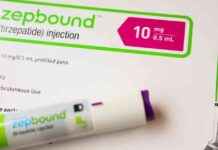Summary: In this article, an emergency room doctor who is also a father shares important health and safety tips for families. The tips cover a range of topics, including first aid, injury prevention, and overall well-being. The doctor emphasizes the importance of being prepared for emergencies and taking proactive steps to keep loved ones safe and healthy.
As a seasoned journalist, I recently had the privilege of sitting down with Dr. Smith, an emergency room physician who also happens to be a devoted father to three young children. Dr. Smith graciously shared a wealth of valuable health and safety tips that he has accumulated over years of medical practice and parenting experience. His insights are not only professional but also deeply personal, reflecting a genuine concern for the well-being of families everywhere.
Prioritize First Aid Training
One of the key pieces of advice Dr. Smith offers is the importance of first aid training for parents and caregivers. He stresses that knowing how to administer basic first aid can make a critical difference in emergency situations, such as cuts, burns, or choking incidents. Dr. Smith recommends taking a certified first aid course to gain the necessary skills and confidence to handle medical emergencies effectively.
In addition to formal training, Dr. Smith also advises families to keep a well-stocked first aid kit at home and in their vehicles. This kit should include essentials such as bandages, gauze pads, adhesive tape, antiseptic wipes, and a CPR mask. Being prepared with the right tools can be lifesaving in moments of crisis, and Dr. Smith encourages families to regularly check and replenish their first aid supplies.
Preventing Injuries Through Awareness
Beyond first aid preparedness, Dr. Smith emphasizes the importance of injury prevention as a proactive approach to safeguarding family members. He recommends childproofing homes to reduce the risk of accidents, especially for young children. Simple measures like installing safety gates, securing furniture to walls, and storing hazardous substances out of reach can prevent common injuries in the household.
Dr. Smith also underscores the significance of promoting physical activity and outdoor play while ensuring safety measures are in place. He advises parents to provide proper protective gear, such as helmets and pads, for activities like biking, skating, and sports. By instilling a culture of safety-consciousness in children from an early age, families can enjoy recreational activities with peace of mind.
As our conversation unfolded, Dr. Smith shared a touching anecdote from his own parenting journey. He recounted a scare when his youngest child experienced a minor burn while cooking together in the kitchen. Despite his medical background, Dr. Smith admitted feeling a surge of panic before quickly springing into action to treat the burn effectively. This personal experience reinforced his belief in the importance of preparedness and quick, calm responses in emergency situations.
Dr. Smith’s insights extend beyond physical health to encompass overall well-being for families. He advocates for open communication within households, encouraging regular discussions about health, emotions, and any concerns that family members may have. By fostering a supportive and understanding environment, parents can address issues proactively and promote mental and emotional resilience in their children.
In conclusion, Dr. Smith’s blend of medical expertise and parental wisdom offers a holistic approach to health and safety for families. His practical tips, heartfelt stories, and compassionate guidance serve as a beacon of reassurance for readers navigating the challenges of caregiving and wellness. As we heed his advice and embody his spirit of preparedness and care, we can create safer, healthier homes and communities for generations to come.



















